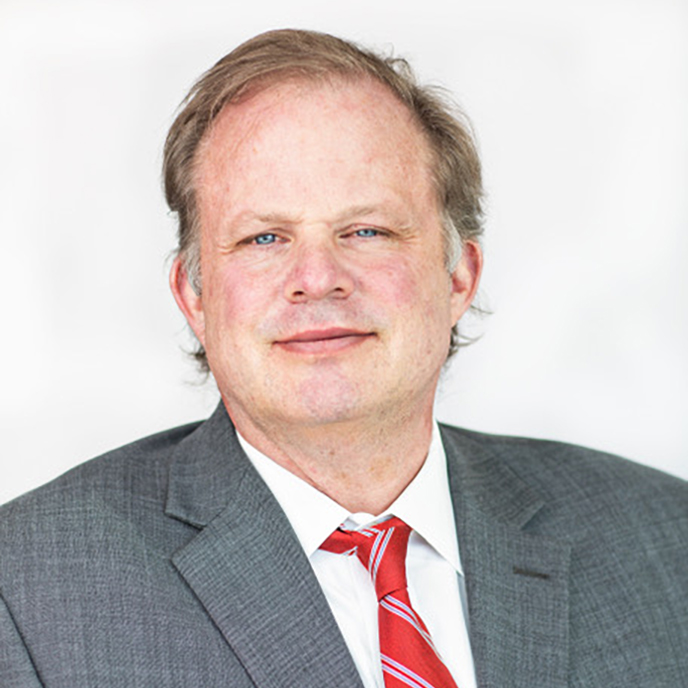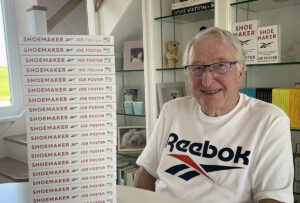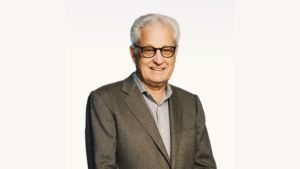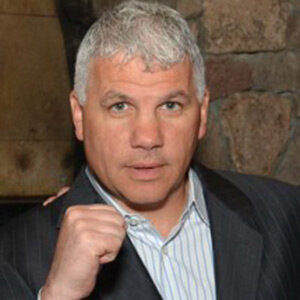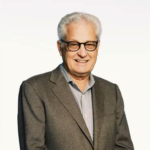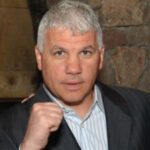View this episode's trailer
Episode Description
Dr. Christina Rahm introduces you to the one and only Kline Preston as they talk about how he became so passionate and engrained in Russian culture, his experiences as a lawyer, politics and how perspective is missing within our country, compared to other countries.
Host
Dr. Christina Rahm
Guest
Kline Preston
TRANSCRIPT
Intro [00:00:00] [inaudible] It’s really good. It’s beautiful, actually. And I hope you guys enjoy this episode of Scientifically Beautiful which is on the Life’s Tough But You Can Be Tougher Network.
Dr. Rahm [00:00:43] Hi, this is Dr. Christina Rahm and this is Scientifically Beautiful. Welcome back. I can’t wait to do this episode. We’re doing it with a really good friend of mine who’s also someone that I’ve worked with. Amazing individual, not just in the United States, but internationally. And he’s done a ton of work in Russia, as well as other places in the world. His name is Kline Preston. Welcome today, Kline.
Kline [00:01:04] Well, I appreciate that that introduction I was… I’m still wondering how I wound up on a show called Scientifically Beautiful.
Dr. Rahm [00:01:12] Well, because you are an attorney that has actually worked for me as well as other works with me, as well as with other scientists and people in medicine and clinical. And again, not just in the United States, but throughout the world.
Kline [00:01:27] That’s true. That is true.
Dr. Rahm [00:01:32] I’m putting my glasses on so I can be more scientific.
Kline [00:01:35] You are, you are scientific.
Dr. Rahm [00:01:36] Yes. So, Kline has helped me.
Kline [00:01:38] It’s probably the uniform.
Dr. Rahm [00:01:39] That’s right. Kline’s helped me a lot because when you’re a scientist that does patterns or science or medicine or health care. A lot of times you’re under critical attack, people will criticize the patents or the trade secrets or what you’re doing. And so, he has represented me in multiple areas and is also an amazing person in business, not just like I said in the United States, but in Russia. So today I wanted to talk more about Kline and less about me because he’s a fascinating person. I remember when I first met Kline and I was sitting there thinking I could talk to him for hours, wow this person is larger than life. And I sat there and I was thinking, who does this person… Who does he remind me of? And I realized I no one. He’s just himself and he’s truly himself. So, I’m really excited today that people get to see you.
Kline [00:02:31] I appreciate the introduction. And I wanted, you know, now for the letdown. I know, I know.
Dr. Rahm [00:02:33] But the broadcast that’s showing this, the network is called Life Is Tough, But You Can Be Tougher. So today we are going to talk a little bit about Russia and what you’ve done in Russia. But I wanted to start with a little bit about you and whatever you want to talk about, about yourself and what’s made you who you are today. And then also, I would love for you to mention one or two things that were tough in your life and how you got through those and still were able to get up in the morning and get through things. Because one of the reasons we’re doing this broadcast is not just about science, but how people can overcome things and be who they are, because most leaders have had to go through a lot of tough things in life.
Kline [00:03:21] Yeah, I agree with that. I would say probably the biggest, toughest things in my life was when I was younger and I was always athletic and played sports. And, you know, in the college when my college football career ended that was probably one of the toughest things because I had put everything into playing college football. And so, after my freshman year at Furman, South Carolina, we made the big mistake of being the homecoming game at NC State in 1995, and we went to Raleigh and we beat the dog doo out of them. Well, so what they do, they turn around hired our staff. So, I was recruited by that staff, and then they went to NC State after that year and the next spring. And so, I decided after that to make a change, college football was fun. So, a lot of work as a job and it was different than today nobody got paid. We had to actually sneak around and work to, you know, have money to drink, you know, go out and drink milk and things of that nature. It’s expensive, especially if you drink about the case. And so that was that was tough. So that was a big… I guess turning point in my life when I had to make the decision to leave that school and go to Tennessee, and that was… that was probably one of the better things in my life because that’s where I met my wife, which opened up a new thing, a new world. And we have, you know, three great kids. And, you know, I was able to pursue what I have always been interested in from a young age. And that is Russia. The country, the language, the culture fascinates me, the history, such a rich country and in all those areas. And so, Tennessee had that program, Furman did not. And so that opened that door. And then, you know, I would say probably the most significant thing. So, I was probably 19 or 20 when that big change occurred.
Dr. Rahm [00:05:36] When was the first time you went to Russia? How old were you?
Kline [00:05:39] I was, I was twenty-one and I was in 1999. So, it was still the Soviet Union. Yeah. And so, the Wall had just fallen in Berlin in November of ’89. So actually, I was there before that. So that had not happened. There was months to come, but not long after the Soviet Union dissolved and on December 31st of ’91. And so, you know, it was just a couple of years. Yeah, and it was gone. And that was such an unforeseeable thing for me. Having gone to school there, it was a, you know, you might not be as old as I am, but…
Dr. Rahm [00:06:27] I think I I think I actually almost am.
Kline [00:06:30] But you don’t look it.
Dr. Rahm [00:06:31] Well I don’t know about that.
Kline [00:06:32] So, you know, when I was a kid, the big enemy, the big threat was nuclear.
Dr. Rahm [00:06:38] I remember I remember.
Kline [00:06:39] Nuclear threat from Russia.
Dr. Rahm [00:06:41] From Russia. I remember watching it on the television and actually being nervous because it was such a big deal on television. And I I’ve been to Russia like you have many times, not nearly as much as you, but I… it was completely different than what I experienced. So, I’d love to hear, and I know the audience would love to hear what it was like when you first went and what it’s like now and your experience with it, by the way, were you not to get off topic, but were you nervous about Russia or not?
Kline [00:07:10] No, I mean, I wasn’t scared of it or anything. I was just excited to have the opportunity to go. The real tough thing was it was so different than the United States in that there was a lot of structure. You know, I remember getting off the plane and of course, I’d had three years of three calendar years of Russian before I went there. And I remember getting off the plane and I didn’t understand anything. And I would get off the plane, de plane and go down the stairs. And you know, there are soldiers there with guns and, you know, holding the [inaudible] in the presence.
Dr. Rahm [00:07:55] Right.
Kline [00:07:56] And so, you know, I was little different than flying into Tyson McGee or whatever and Knoxville, you know?
Dr. Rahm [00:08:02] Yeah. Oh yeah.
Kline [00:08:02] And so that was kind of wow. And I just remember for the first two weeks I was there, my head hurt terribly because I didn’t understand. I mean, trying to understand, you go from classroom to like real Russia. And those are two big differences, huge differences. And a funny thing. We were able to live in a hotel instead of the dorms at the university. And so, which was a benefit, and I’m glad they let us. And so, we live in this hotel. So, we had some I wouldn’t call it concierge, but you know, we could buy things around the clock in a little market and stuff like here and decent hotels. Well, one of the first people I met in Russia had a stutter. The Russian guy and we met him at the hotel. And so, I’m sitting here and I’m a baby as far as my language goes, you know, three years of language, but it’s classroom language. And I remember thinking, you know, that’s how you pronounce it saying, the guy’s going and I’m thinking, wow, this is a lot different than my professor, you know, he’s got a speech impediment, and he’s one of the first people on me and I’m thinking, Wow, man, the cadence of the words. I mean, it’s just not right. And then after learning, a few other people might know, I don’t even speak correctly. Yeah, but you know, not knowing the language, really? Yeah, it’s kind of funny.
Dr. Rahm [00:09:24] But, but you powered through that, and I’m going to brag about you a little bit. You’ve actually even written law books in Russian. Correct.
Kline [00:09:34] Yeah.
Dr. Rahm [00:09:35] And you’ve served between the United States and Russia to help our government with elections and different things as it pertains to Russia.
Kline I think I’ve tried to help. Others think otherwise.
Dr. Rahm [00:09:45] Well, that’s one of the things about being a leader, and I think especially when you travel all over, my experience is, it’s very different when people think here what the actual countries are like and you know what…
Kline You get off the news here.
Dr. Rahm Yeah. And honestly, you think that, yeah, it’s not… it’s not accurate. And then you think that these countries are bad and then you go in and you experience their people, right, like us and actually all these governments work together. And I know, you know, that probably more than I do. So, you actually have somehow gotten through that and continue to be an expert in Russia from numerous things as well as United States help. How is that transition and how has that affected you? You know, we live in Nashville, Tennessee, so it’s a very southern state. So I would say, you know, there aren’t a lot of people that go to Russia regularly in Tennessee.
Kline [00:10:41] No, obviously in our country as a whole, there are very few people. So, the source of information –and this is a big problem I think—the source of information for the majority of our population is from our television and so untrustworthy. Yeah. I’m just telling you the way it is. It is untrustworthy. And I don’t care what station it is, what network. I mean, ‘ll be very candid. I mean, I prefer to watch more FOX than, you know, MSNBC. But I do look around and I compare. I watch BBC. I watch some German. I watch Russian. We’ve got a satellite dish or I’m just dedicated to Russia. So, we get, you know, full set of channels from Russia. So, I keep up with the news there, and I kind of listen to the news and watch the news from different countries on the same issue. And you get a little different, you get a little different information.
Dr. Rahm [00:11:37] It’s one of my favorite things to do, is to go into countries and watch their news because it’s so different, completely different.
Kline [00:11:43] You know? And I’m not going to say that everything on the news in Russia is absolutely accurate, but I can tell you that I have seen where they have been and we haven’t been on certain issues, particularly on elections. Yeah, their information is pretty good. And frankly, we’re kind of at a disadvantage when you talk about what our population knows about Russia because their population knows a lot more about us and it’s more accurate, like they’re better educated person to person. The Russians are more educated than we are. They’re more literate than we are.
Dr. Rahm [00:12:18] Do you think their medical system and health care system, because I know you’ve worked with me in different areas of that. Do you do you feel like theirs is better than ours?
Kline [00:12:27] You know, it’s hard to say. I guess you have to ask yourself, what do you mean better? Is there access to medicine in Russia for everyone? Yes. And actually, there is here too.
Dr. Rahm [00:12:41] Yeah.
Kline [00:12:42] But it depends on how you fall upon, you know, we’ve got these different accesses to medicine. Right? You know, whether you’re in a PPO, you’ve got regular insurance, Medicaid, Medicare, TennCare, there’s so many different kinds. And then you’ve got the law that says if you show up in an emergency state, an emergency state, they have to treat you.
Dr. Rahm [00:13:05] They don’t have a choice, right.
Kline [00:13:07] So, you know, I would say our medicine is as far as acute care emergencies, we’re one of the best, if not the best in the world at acute care. Long term care… I don’t think we have a passing grade.
Dr. Rahm [00:13:24] Yeah.
Kline [00:13:24] And the reason I say that is because what I’ve noticed in Russia in dealing with the Russian health system, I think the doctors there are more classically trained because traditionally they have not relied so much on technology for diagnostics and stuff… more, they rely more on the body. And, you know, of course, they do tests and all that. But I think our system is less holistic also. My understanding from the doctors I know here, and you know, I’ve got some medical issues that I’ve periodically see doctors and, you know, I’ve never had a doctor ask me what I eat. But yeah, you know, I mean, I’ve got a very close friend and confidante who’s a Chinese doctor, Chinese practitioner here in Nashville and Dr. Shu.
Kline [00:14:22] Yeah. I know Dr. Shu.
Kline [00:14:22] And Dr. Shu, he’s great. Dr. Shu, though he’s got a Western education and eastern and his father was head of surgery in Shanghai, at the hospital, at the main hospital. And so, he came up learning both systems. And so, the Chinese approach, I think, is better for long term.
Dr. Rahm [00:14:42] Yeah.
Kline [00:14:43] Care and health and ours is more about acute, and I don’t mean to sound like a conspiracy theorist, but in my opinion, I’m not sure with certain types of conditions in this country, a cure or anything else is really at the top of the priority list, particularly when you speak about diabetes.
Dr. Rahm [00:15:05] Yeah.
Kline [00:15:06] I mean, you know, keeping a patient on insulin needlessly as a treatment without, you know, hey, you know, this person needs to eat a low carb diet and stuff. I mean, you get… I think our medicine is poor.
Dr. Rahm They don’t even talk to a lot of patients about it.
Kline They don’t ask you what you eat.
Dr. Rahm [00:15:30] No. And I transition from the pharmaceutical to nutraceutical back and forth. I’m shocked at it, honestly, because when you go to, like China, Russia pick, you know, the Asian countries, the Eastern European countries, Middle East even, they really do get into those parts. And I’m not. I love our healthcare system in a lot of ways because I do think you’re right. I think if there’s an emergency or there’s a surgery or something that has to happen, it’s very good. But there’s a piece of it that’s left out the holistic approach. Unless you go to a functional medicine doctor or someone who’s studied like in China, Russia or different countries or here to really do that, they’re not learning that in medical school. Well, and they’re not discussing it with patients.
Kline [00:16:12] Yeah, here. And that’s why I have another close friend who’s also a physician. Actually, my primary guy and his name is David Turner, and we’re supposed to meet with him. And so, Dr. Turner, but he’s trained in Canada.
Dr. Rahm [00:16:26] Yeah.
Kline [00:16:26] And so he’s a holistic guy. He looks at the whole animal, you know, which it really makes sense. And so, he’s great. So, I’ve had a lot of, and I’m not a person… But there are some fine doctors and surgeons in this town. But as far as overall care, I think there are other parts of the world that may have a little better approach. And Russia is one of them. But I also say scientifically, Russia’s been at the forefront of a lot of different types of medical breakthroughs. For instance, you know, we see this laser eye surgery that was invented in Russia.
Dr. Rahm [00:17:02] So I think one of the things I respect about you is because you travel and been exposed to things. You’ve had controversy, but you stood up and you’ve been tough and you’ve still kept your opinion and still kept your voice. And one of the things I think we’re lacking lately and I’ve seen more and more of it is people unwilling to take their own lives into their own hands, their own opinions into their own hands, and instead they’re reliant on someone that’s on television that may have a hidden agenda or may have some other reason that they’re saying that, that’s a completely bothersome thing to me and then taking away people’s freedom of choice and people allowing that, I think, is a second step. And I think, you know, seeing other parts of the country of the world and being exposed to it, it’s important we don’t do that. I respect that about you, and I would love for you to give the audience your opinion on how they can be tough and how they can basically syphon through all this stuff that’s going on and make their own decisions. Because I think if we as human beings stop making our own decisions and stop, and just start listening to someone that tells us what to do, we could… and we follow everything they tell us what to do, then we could have a major problem in this country. And as human beings… it’s really important, and I would love for you to share your philosophy. And I just said a lot, but share your philosophy and give advice on how important it is to not just listen to the news, Kline, or not just listen to one doctor and do what they say.
Kline [00:18:41] Well, I think a lot of it has to do with self, self-responsibility and self-respect. And so, you know, that’s one of the things. I don’t think we read enough in our country. And so, you know, it starts with educating yourself. But even before that, and I know this isn’t supposed to be a religious broadcast, but if you, and I think this is very important, I think a lot of the strength that people can have as far as improving their lives and improving the countries is based in the faith. And so, you know, if someone is grounded and they have a good relationship with the Lord and they think about what they can do within his plan and they just follow that, I think that’s a big part of it. And along with that, people being given strength and fortitude to move forward. The other thing I’ll have to say is. I think you have to take charge of your own life, and that means in a lot of different areas. And so even when you’re in the health care system, you have to be aware, you know, if something doesn’t feel right about what you’re getting told or being told or what, I mean, you need to follow up on that. And so, you almost have to be your own advocate always.
Dr. Rahm [00:20:14] I was thinking I was thinking about you the other day and I was thinking, I wonder how Kline is able to always while you’re always happy, you’re always strong. I know there are days, I’m sure you’re not, but you’re always this strong figure in my life. And I think so many other people and I do know it’s your faith. You had a father that was a minister. That is a minister.
Kline [00:20:38] He is. Eighty-two years old.
Dr. Rahm [00:20:39] And for me, I think that’s been my foundation. Being raised in that environment, you know, I was downstairs at the table at six o’clock every morning with my mom for us to read a Bible study and everyone has a different faith. I understand that, but that for me has been my rock and my strength, and that helps me have a voice. But I think, you know, a long time ago when you were explaining the legal system to me because I was saying, this isn’t fair, why is this happening? And you said, it’s not about being fair. You have to be willing to step up, hire the right attorney and fight the fight to get to where you’re trying to do the right thing. So, I’m sure you’ve seen a lot of legal cases which are part of politics, right? Where the good person didn’t always win. But it was… so you know that just because one person is a judge or one person who’s a lawyer says one thing doesn’t mean they’re saying the right thing. And I know that about doctors, because I’m a scientist that’s worked in the pharmaceutical and nutraceutical space, and I want the audience to know that just because a doctor went to a Johns Hopkins or a Harvard or a University of Tennessee, that’s one doctor’s opinion who hasn’t been exposed to 50 countries or 100 countries or educated in different countries. So it’s just one opinion, right?
Kline [00:21:52] I agree.
Dr. Rahm [00:21:53] And I think I think the audience needs to know that because so many people have lived a comfortable life, right?
Kline [00:22:00] Well, I think that’s one of the downsides of our country because, you know, with the comforts that we have. I mean, one of the things that I think our population is lacking, is perspective. You know, you travel to so many countries when you leave here, you go someplace and there are people that live like it’s almost like not real what little they have. And whereas here our poor people have cell phones and cable TV. I mean, except for, you know, we have our homeless and stuff. That’s a complex issue that involves a mental illness and some other things. But the resources are here for everybody. Unless you try… you almost like you… almost unless you’re totally disabled… nobody can bring you food. You have to try to starve in this country.
Dr. Rahm [00:22:49] I agree when people say we don’t take care of our homeless. I want to say because I was in the mental health system as a psychologist, right? I want to say, well, some of that’s mental health issues because the system’s actually set up to help everyone. But I do think, and a lot of times it’s a choice that they’re not reaching out to resources. But I do think comfort and not being able to go out and experience these different countries is a hindrance to the United States.
Kline It is. It’s a negative.
Dr. Rahm Well in Europ Europe, because they’re traveling everywhere, right?
Kline [00:23:17] So they have perspective and so, they don’t think our people who are out marching and raging on about, you know, how bad it is here. You know, they have a house or apartment and a vehicle and this and that. And so, you know, our poor are rich compared to most of the world.
Dr. Rahm [00:23:37] Oh, absolutely.
Kline [00:23:38] And…
Dr. Rahm [00:23:40] Absolutely.
Kline [00:23:41] You know, it’s… in a way it’s a bad thing that we have this success, you know, because it makes us less sharp and makes us softer.
Dr. Rahm [00:23:53] Well, I think that for some reason we think… I think for some reason, we think our country knows more than any other country and that we’re always right. I was on the phone with this project that we’re going to be involved in Cyprus. And of course, there’s a lot of people involved that I will be talking to next Thursday that are Russian. And because I don’t know, I mean, I’m sure you know this, Cyprus is composed of a lot of people from a lot of countries that are very wealthy people. And they asked me today and Dori, Dr. Dori was on the phone if we had the legal group, that could handle a lot of this. And I said, absolutely, and I mentioned you. And they said, how will he be working in different countries? You know, because there’s some Eastern European Europe countries involved, I said he will be absolutely fine and they made a comment that a lot of Americans don’t want to go to Turkey or don’t want to go to Cyprus or don’t want to go to Russia, and I said, no, no, no, that’s not Kline. And I said, you know, it’s ironic because in Europe, everyone wants to go to Turkey, for example, for vacation or did you know that they love to go or Dubai? Right. But there’s a lot of people in the United States, and I think it’s just a lack of knowledge and a comfort. But I think it’s not healthy for us, and I think we have to…
Kline [00:25:10] But our schools don’t, you know, promote the real education. And so, you know, we’re a very myopic nation culturally, and we, I think, you know, it doesn’t bode well for us because when you compare, you know, a high school graduate in the United States from one from Germany, there’s no comparison. No, or many these countries, I mean, the Chinese are whipping us in education. And you know, that’s why they’ve got five hundred thousand students here.
Dr. Rahm [00:25:42] Oh, yeah. And they’re traveling all over. I mean, they’re going everywhere. And I know that, Kline, when I met you, I thought, finally, there’s an attorney I can talk to because it’s… you need someone with a global perspective and you’re going to do global health care and wellness, right?
Kline No, you do.
Dr. Rahm And because otherwise, there’s just no understanding and the perspective you bring to the United States because of what you’ve done into the legal system, I think is phenomenal. And I’m very thankful that I have had the opportunity to work with you. I don’t want you to work with anyone else because then we won’t have time to work together. So, no one can contact Kline after this.
Kline [00:26:20] You’re such a great friend. And it’s been really wonderful working with you.
Dr. Rahm [00:26:27] I love working with you and I love working with his wife. By the way, Tiffany works with us on our global perspective with the International Science Nutrition Society and Root and this other project that we’re getting into. So… And then Kline and I have a few things that we’re thinking of doing. Hopefully in Russia, it’s been hard to have things locked down. And so, I’m hoping that…
Kline [00:26:46] Well, right, I know it’s still pretty much closed and they’re not processing visas either way, going there, coming here.
Dr. Rahm [00:26:54] You have any idea when not open.
Kline [00:26:56] They say any day, but you know, any day becomes months.
Dr. Rahm [00:26:59] Yeah.
Kline [00:27:01] You know…
Kline [00:27:01] How is that? I saw a report on… just a couple more things on the COVID and like I said, I was on the phone with someone from Russia a week ago. I don’t think Russia’s growing as much with the variant, the Delta variant with COVID, they don’t have as many cases, do they?
Kline [00:27:16] I’ve heard different stories. I mean, I watched the Russian news and it doesn’t seem to be catastrophic. You know, the people that work with me in Russia, I mean, they’re doing their work without any hindrances or without masks.
Dr. Rahm [00:27:29] They can come and go.
Kline [00:27:31] Do what they want. But you know, some of the news that I hear about the Delta variant and Russia is Western, so I don’t know what…
Dr. Rahm [00:27:40] Yeah.
Kline [00:27:41] I don’t know what’s accurate. I know that, you know, the people that I know there that are working and they’re fine. They’ve gotten the shots. And…
Dr. Rahm [00:27:51] Yeah.
Kline [00:27:52] You know, some haven’t. They’ve gotten COVID and they were sick for a few days and moved on.
Dr. Rahm [00:27:58] And they’re not criticizing the ones that aren’t getting it there.
Kline [00:28:01] No, I mean, you know, some people probably on their Facebook thing, but “I’ve been vaccinated,” little symbols, you know? You know, but I mean, it’s a small percentage. But you know, contrary to the American belief, you know, the great dictator Putin…
Dr. Rahm [00:28:15] Yeah.
Kline [00:28:16] …is not making everybody get the vaccine. It’s very, it’s a… very free society.
Dr. Rahm [00:28:23] I have a different opinion about Putin than a lot of people. I don’t think he’s this horrible dictator.
Kline [00:28:28] He’s great actually. I mean, I know that’s, you know, blasphemous, I guess for us.
Dr. Rahm [00:28:32] No, it’s not.
Kline [00:28:33] Traitorous for an American to say, but he’s a… he’s a really good leader. I mean…
Dr. Rahm [00:28:38] He’s helped them a lot. The country.
Kline [00:28:40] When he took power in 2000, the inflation rate was about twenty-six hundred percent a year. Right now, it’s about six. He’s increased salaries. He’s either built or renovated over ten thousand churches now. Russia is leading the world in the expansion of Christianity.
Dr. Rahm [00:29:10] Wow. I didn’t know that, I knew that he was doing the churches, but I didn’t know that they were leading.
Kline [00:29:15] They’re leading. Well, you know, you’ve probably heard of the third room.
Dr. Rahm [00:29:18] Yeah.
Kline [00:29:19] That’s Moscow. So, on the last days, the prophecies go, the third room, you know, we’ll take… be the leader of the church. So that’s Moscow. In the first room, obviously, Rome, second Constantinople, which is now Istanbul. Yeah. And the third is Moscow. And it’s strong there. I mean, they’ve had Christianity for over a thousand years. I mean, stronger, the church has been intact.
Dr. Rahm [00:29:45] Yeah. It’s a Russian Orthodox church, right?
Kline [00:29:49] Yes.
Dr. Rahm [00:29:49] Yeah.
Kline [00:29:50] It’s… they allow other faiths, but you know, they’re there. They banned some of the American faiths, you know?
Dr. Rahm [00:29:58] I knew that. Yeah
Kline [00:29:59] Because I don’t know. Some of that was political. Yeltsin started it. And you know.
Dr. Rahm [00:30:06] Well, I think what happened in America when they heard they banned some of those, they thought it was all of Christianity and it wasn’t. And that’s another misconception. And it’s kind of like a gossip. Someone says something and then everyone believes it.
Kline [00:30:17] When I say ban, that’s not, that’s not actually true. The law is very creative. The law just makes it more… if you’re going to have a church. It’s not the Russian Orthodox Church that comes in to do services and proselytize. They actually have to have real estate. They actually have to have some things that make them not a fly by night group. And so, most of them don’t. And so, they don’t want to …
Dr. Rahm [00:30:42] Cults too.
Kline [00:30:43] Well, yeah. Yeah, that is banned.
Dr. Rahm [00:30:44] Yeah.
Kline [00:30:45] So like, Jehovah’s Witnesses are banned.
Dr. Rahm [00:30:47] Yeah.
Kline [00:30:47] I’m not saying they’re a culture mob. I’m just saying they are.
Dr. Rahm [00:30:51] The Latter-Day Saints were banned, but I think.
Kline [00:30:53] They’re legal. But you know, and then there’s the…
Dr. Rahm [00:31:00] Scientology. Yeah.
Kline [00:31:01] Is not very welcome.
Dr. Rahm [00:31:04] Yeah.
Kline [00:31:04] I think that might be there legally, but they’re always challenges due to some infractions. Yeah, but that that group has a lot of money. Apparently, they have a lot. And so, I think they were able to buy a building or something to have their faith. Whatever you call it there. But you know, the Russian Orthodox churches is the foundation of that country, culturally and everything else.
Dr. Rahm [00:31:31] Some of the oldest churches?
Kline [00:31:32] It is.
Dr. Rahm [00:31:32] Yeah.
Kline [00:31:33] What’s the original church corner there?
Dr. Rahm [00:31:35] Well.
Kline [00:31:36] There was the schism that became Rome. And then… Constantinople.
Dr. Rahm [00:31:40] Yeah, Ukraine. They say the same thing because, you know, Ukraine was part of Russia in that they now have the Ukrainian…
Kline [00:31:49] Church, which was a schism which, you know, a lot of people say that was fomented by American interests to break off from Russia. But, you know, I’m not sure what the…
Dr. Rahm [00:32:02] Well, it’s interesting when I’m in Ukraine and Russia, they’re all… They’re fighting a war, but they’re friends and they’re the same families back and forth. And so, it’s like it was created as a political between the two countries. It’s really…
Kline [00:32:16] Yeah, that’s a whole, you’re talking about a whole new broadcast.
Dr. Rahm [00:32:18] Yeah, that’s a whole new broadcast. So I’m going to have to wrap it up. But I want to thank Kline. I’d love to have him back, and to talk about more about Russia and not just the science, but also what’s happening in that country and our country, because I think you have amazing philosophy. So, I want to thank everyone for being in on this journey and episode with us today. This is Scientifically Beautiful, and I want to thank Kline for being an amazing guest, and an amazing friend.
Kline [00:32:50] I appreciate that.
Dr. Rahm [00:32:52] Oh, that’s right. You’re supposed to speak some Russian. You want to tell everyone. They don’t know what that means.
Kline [00:32:57] do svidaniya, goodbye, goodbye
Dr. Rahm [00:32:59] I can’t say it. It’s possible.
Kline [00:33:01] Yeah.
Dr. Rahm [00:33:02] But yeah, I love you, right?
Kline [00:33:04] No.
Dr. Rahm [00:33:04] No to the Oh, thank you.
Kline [00:33:06] Yeah, yeah.
Dr. Rahm [00:33:08] Yeah, lovely. Yeah. I’m not very good at it. I have to say it’s almost like it on my stage name.
Kline [00:33:14] Yeah.
Dr. Rahm [00:33:16] Thank you everyone. Have a wonderful day and we’ll wrap this up and we’ll see you soon on the next episode of Scientifically Beautiful.

